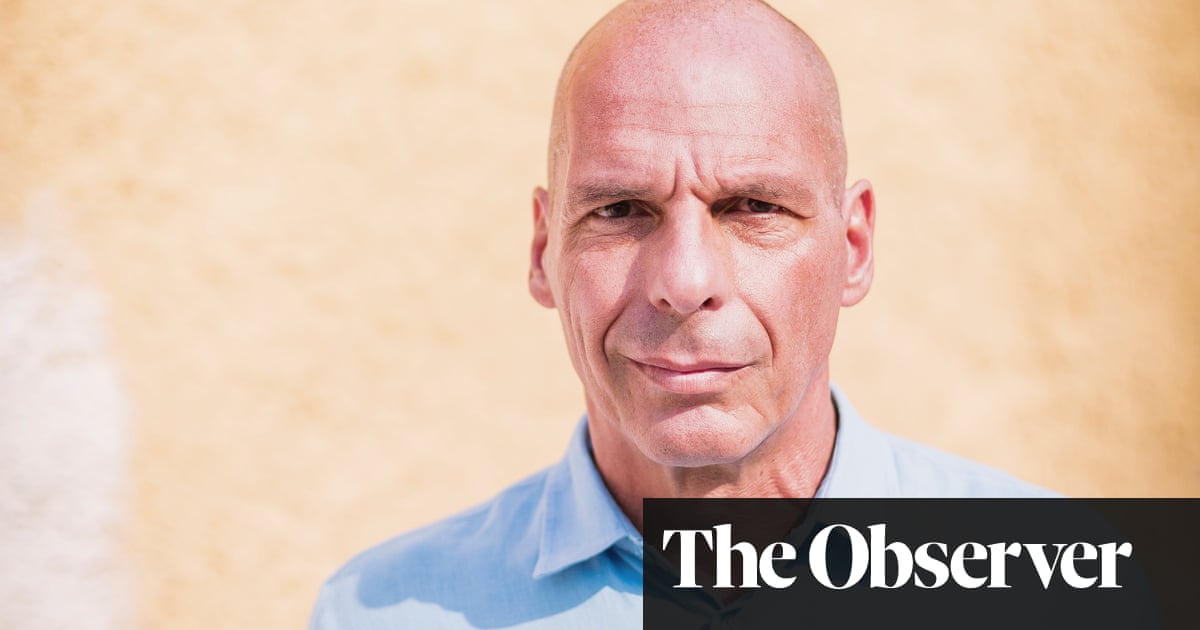That the end of the world feels just a little bit nearer here than it does in some places may not be coincidental to Varoufakis’s having written a new book called Technofeudalism: What Killed Capitalism. Nor that the book comes to the conclusion that capitalism has been replaced with something even worse. Not the glorious socialist revolution that his hero Marx foresaw. Nor some new mutation of capitalism such as the one detailed by Shoshana Zuboff in her surprise 2019 bestseller, The Age of Surveillance Capitalism. We’re now in servitude, Varoufakis argues, to the fiefdoms of our new global masters, Lord Zuckerberg of Facelandia and Sir Musk of the rotten borough of X.
…
It’s a big-picture hypothesis rooted in a historical account of how capitalism came into being that describes what is happening in terms of an epochal, once-in-a-millennium shift. In some ways, it’s a relief to have a politician – any politician – talking about this stuff. Because in Varoufakis’s telling, this isn’t just new technology. This is the world grappling with an entirely new economic system and therefore political power.“
Imagine the following scene straight out of the science fiction storybook,” he writes. “You are beamed into a town full of people going about their business, trading in gadgets, clothes, shoes, books, songs, games and movies. At first everything looks normal. Until you begin to notice something odd. It turns out all the shops, indeed every building, belongs to a chap called Jeff. What’s more, everyone walks down different streets, and sees different stores because everything is intermediated by his algorithm… an algorithm that dances to Jeff’s tune.”
It might look like a market, but Varoufakis says it’s anything but. Jeff (Bezos, the owner of Amazon) doesn’t produce capital, he argues. He charges rent. Which isn’t capitalism, it’s feudalism. And us? We’re the serfs. “Cloud serfs”, so lacking in class consciousness that we don’t even realise that the tweeting and posting that we’re doing is actually building value in these companies.
…
But perhaps traditional distinctions between left and right don’t make sense any more. The right, Varoufakis says, “thinks of capitalism as like a natural system, a bit like the atmosphere”. Whereas the left “think of themselves as people created by the universe in order to bring socialism over capitalism. I am telling you: you know what, you missed it. You missed it. Somebody killed capitalism. We have something worse.”
The early internet, he says, has given way to a privatised digital landscape in which gatekeepers “charge rent… The people we think of as capitalists are just a vassal class now. If you’re producing stuff now, you’re done. You’re finished. You cannot become the ruler of the world any more.”



This is the best summary I could come up with:
What could be more delightful than a trip to Greece to meet Yanis Varoufakis, the charismatic leftwing firebrand who tried to stick it to the man, AKA the IMF, EU and entire global financial order?
The house is where Varoufakis and his wife, landscape artist Danae Stratou, live, year round since the pandemic, but in August 2023 at the end of a summer of heatwaves and extreme weather conditions across the world, it feels more than a little apocalyptic.
Stratou and Varoufakis are a striking couple, as glamorous as their house, a cool, luminous space featuring poured concrete and big glass windows overlooking a perfect rectangle of blue pool.
“I have no issues with luxury,” he says at one point, which is just as well because the entire scene would give the Daily Mail a conniption, especially since Aegina seems to be Greece’s equivalent of Martha’s Vineyard, home to a highly networked artistic and political elite.
I’d messaged a bunch of people to ask them what they would ask Varoufakis, including McNamee, and precised the book to him – that two pivotal events have transformed the global economy: 1) the privatisation of the internet by America and China’s big tech companies; and 2) western governments’ and central banks’ responses to the 2008 great financial crisis, when they unleashed a tidal wave of cash.
This encouraged business models that promised world-changing outcomes, even if they were completely unrealistic and/or hostile to the public interest (eg the gig economy, self-driving cars, crypto, metaverse, AI).
The original article contains 2,683 words, the summary contains 252 words. Saved 91%. I’m a bot and I’m open source!